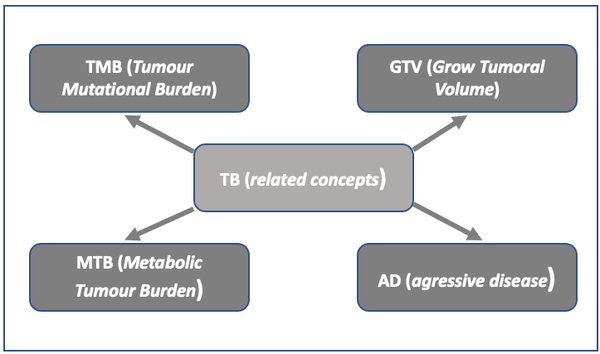-
Home
-
About JCTR
-
Gold Open Access
-
Issues
-
Editorial board
-
Author guidelines
-
Publication fees
-
Online first
-
Special issues
-
News
-
Publication ethics
-
Partners
-
Submit your manuscript
-
Submit your review report
-
Editorial Office
-

This work is licensed under a Creative Commons Attribution-NonCommercial 4.0 International License. ISSN print: 2382-6533 ISSN online: 2424-810X
Volume 8 Issue 5
High tumor burden in non-small cell lung cancer: review of the literature
Luis Cabezón-Gutiérrez*, María Sereno, Raquel Cervera-Calero, Xabier Mielgo-Rubio, Oliver Higuera
Cabezón-Guitiérrez et al. J Clin Transl Res 2022; 8(5):8
Published online: September 13, 2022
Abstract
Background and aim: Lung cancer is the leading cause of cancer death worldwide and the majority of the patients have advanced/metastatic disease on presentation. In clinical practice, several biomarkers and clinical factors are taken into account when choosing the best treatment option in advanced Non–small cell lung cancer (NSCLC). One potential marker may be tumor burden (TB). However, this concept is not specifically defined in NSCLC and usually, it is used as a synonymous for aggressive disease.
Methods: A non-systematic literature review was conducted. We searched for eligible randomized controlled trials (RCTs) from PubMed, Embase, and the Cochrane Central Register of Controlled Trials with a cutoff at February 2021. The keywords included non-small cell lung cancer, tumor burden, aggressive disease, prognosis biomarker, predictive biomarker and immunotherapy.
Results and Conclusion: This review addresses the definition of TB in advanced NSCLC, the pathophysiology of high-TB lesions, and the role of TB as a prognosis biomarker.
Relevance for Patients: The concept of aggressive disease, as high tumor burden definition, remains poorly defined and rarely considered in clinical research or clinical practice in oncology. The identification of this subgroup of patients could be interesting for defining and optimizing a more aggressive treatment strategy

DOI: http://dx.doi.org/10.18053/jctres.08.202205.008
Author affiliation
1. Medical Oncology, Hospital Universitario de Torrejón. Universidad Francisco Vitoria. Madrid, Spain.
2. Medical Oncology, Sofía University Hospital; European University of Madrid. Madrid, Spain.
3. Medical Oncology. Hospital Universitario del Henares. Madrid. Spain.
4. Medical Oncology. Hospital Universitario Fundación de Alcorcón. Alcorcón. Spain.
5. Medical Oncology, Hospital Universitario La Paz. Madrid, Spain.
*Corresponding author
Luis Cabezón-Gutiérrez
Medical Oncology, Hospital Universitario de Torrejón, C/Mateo Inurria Nº1, CP 28850, Torrejón de Ardoz (Madrid). España
Email: lcabezon@torrejonsalud.com
Handling editor:
Michal Heger
Department of Pharmaceutics, Utrecht University, the Netherlands
Department of Pharmaceutics, Jiaxing University Medical College, Zhejiang, China

